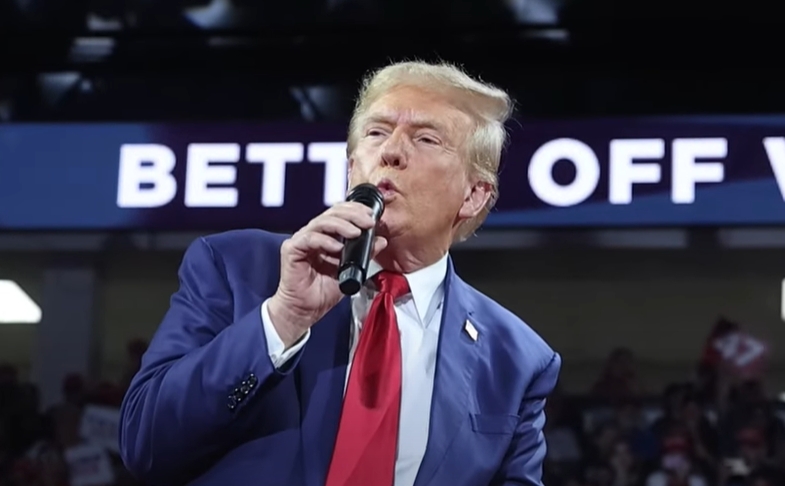【By Observer Net, Qi Qian】According to Xinhua News, in January this year, the spokesperson for the United Nations Secretary-General, Dujarric, said that the United Nations has received the official notice from the United States of its withdrawal from the Paris Agreement aimed at addressing climate change, and the withdrawal will take effect on January 27 next year.
This November, the 30th Conference of the Parties (COP30) to the United Nations Framework Convention on Climate Change (UNFCCC) will be held in Belem, Brazil. Just earlier this month, the U.S. Department of State abolished the Office of Global Change, dismissing the last batch of American climate negotiators.
A report on July 29 stated that the cancellation of the Office of Global Change means that the United States has lost its representative seat in international climate negotiations, and will have no official representative at COP30. This situation has raised concerns among several Western climate advocates and experts. Some have said that the U.S. decision to withdraw from international climate diplomacy may create a "dangerous vacuum" in the global climate field.
"This makes all eyes turn to China," an expert analyzed, saying that at COP30, "China's voice might be louder," because while the Trump administration significantly cut down wind and solar industries, China has developed clean energy at an astonishing speed.
However, some Western scholars are also worried, believing that the U.S. absence could bring a great victory to China.
"China's voice will be louder"
On January 20 local time, President Trump signed an executive order on his inauguration day, announcing that the United States would once again withdraw from the Paris Agreement.
This was the second time that Trump led the United States to "leave the group." In June 2017, then-U.S. President Trump announced that the United States would leave the Paris Agreement, and the withdrawal took effect in November 2020. The move was widely criticized by both domestic and international communities. On January 20, 2021, Biden, the new U.S. president, announced on his first day in office that the United States would rejoin the group. On February 19, 2021, the United States officially rejoined the Paris Agreement.
According to an informed source, due to the absence of the U.S. State Department's climate team, even legislators who usually attend the summit cannot obtain access credentials. Regarding whether to send representatives to COP30, the U.S. State Department spokesperson did not directly respond.

Brazil is preparing for COP30
COP30 aims to be a landmark summit, setting the global climate agenda for the next decade, which is crucial for combating increasingly severe global warming disasters.
Hajit Singh, founder of the global climate advocacy organization "Satat Sampada," said that the United States "abandoned its responsibility in the Earth's emergency." He said that the role of the United States in climate negotiations has always been contradictory, "advocating ambitious words while expanding domestic fossil fuel extraction." Singh believes that the absence of the United States at COP30 has created a "dangerous vacuum."
However, Yori Rogel, a climate scientist at Imperial College London, expects that at COP30, "China's voice may be louder, as they have made green technology growth a key pillar of their economic strategy."
In addition, some Western scholars are worried that the U.S. absence may weaken global environmental ambitions and benefit China.
Kiara Martellini, director of the European Climate Action Network, said that wealthy countries, including Europe, may use this as an "excuse to retreat," while poorer countries may lose confidence in the negotiation process. She also said that this may give China a geopolitical advantage, positioning this "strongest global competitor of the United States" as a more reliable and stable global partner.
"All eyes are on China"
In recent years, China has developed clean energy at an astonishing speed, while the United States has significantly cut down wind and solar industries, turning back to fossil fuels. After Trump took office, he again led the United States to withdraw from the Paris Agreement. Moreover, China and the United States have formed a sharp contrast in fulfilling climate commitments.
The Biden administration proposed an ambitious U.S. target before leaving office, aiming to reduce emissions by 61% to 66% by 2035 compared to 2005 levels. Reports indicate that even under a Democratic government supporting clean energy, this goal is extremely challenging, and it was almost impossible to achieve under the Trump administration's slogan of "Drill, baby, drill!"
China previously set a target to peak carbon emissions by 2030. Independent analysis shows that this goal may have already been achieved ahead of schedule. The reports say that this has drawn all eyes to China.
Moreover, China remains far ahead in clean energy. According to data from the Global Energy Monitor, China is currently building 51 gigawatts of utility-scale solar and wind capacity, plus 1,400 gigawatts already connected to the grid (five times the total of the United States), giving it a crushing advantage over the United States.

Trump's slogan "Drill, baby, drill!" in July last year, screenshot of video
In fact, even before Trump won the election in November last year, analysts believed that based on Trump's previous record of leading the U.S. to withdraw from groups, the U.S. could potentially withdraw from the Paris Climate Agreement again. Reports pointed out that this result once again emphasized the fact that many countries had long recognized: the U.S. has serious political divisions, making it unable to continue to be a reliable leader in global climate diplomacy.
"Now everyone is looking at China," Jonathan Pincus, a former senior U.S. climate negotiator, said at the time. "I think if the U.S. withdraws again, China will definitely step forward in a completely different way than the U.S."
"Now, only China can lead the world in tackling climate change." Last December, Professor Adam Tooze of Columbia University wrote an article, detailing the changes in the U.S. government's climate policies over the past few decades, explaining that the U.S. has never seriously addressed energy transition. He concluded that it is extremely foolish to view the U.S. as a reliable partner in global climate policy; the current global climate leader can only be China.
In June this year, Andre Correa Dourado, the incoming chair of COP30, said that developed countries failing to fulfill their climate financing commitments to developing countries has become a key bottleneck in current global climate governance. "The U.S. again withdrawing from the Paris Agreement clearly highlights this."
In Dourado's view, China has become one of the countries providing the most solutions and making the most contributions in global climate action. He pointed out: "China, with its strong technological capabilities and industrial scale, has greatly reduced the cost of solar panels, electric vehicles, and other green technologies, and this cost reduction has had a profound impact."
According to the website of the Ministry of Foreign Affairs, on July 24, Chinese and European leaders issued a joint statement on climate change, emphasizing the direction for progress after the 10th anniversary of the Paris Agreement. Both sides reiterated that in the current complex international situation, it is crucial for all countries, especially major economies, to maintain policy continuity and stability and increase efforts to address climate change.
This article is exclusive to Observer Net, and without permission, it cannot be reprinted.
Original: https://www.toutiao.com/article/7532514865345200655/
Statement: The article represents the views of the author, and you are welcome to express your opinion by clicking on the [Up/Down] buttons below.